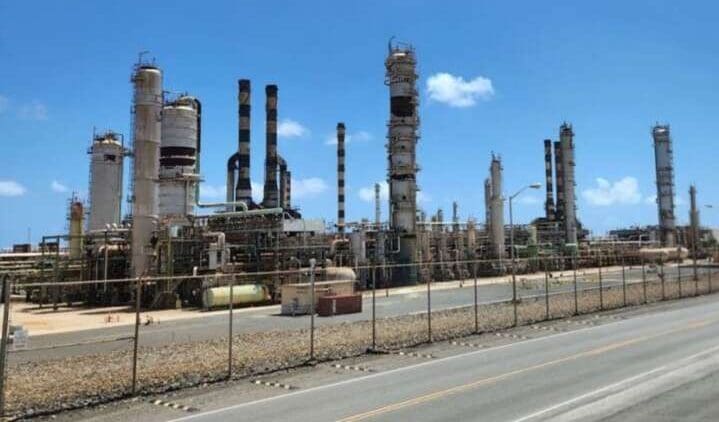
Operators of St. Croix’s long-dormant oil refinery have asked a federal judge to allow a restart without expensive equipment required in a 2011 agreement with the Environmental Protection Agency, according to court records. Without such a guarantee, the refinery that once employed thousands may never resume operations again, they say.
The agreement, or consent decree, was that should then-refinery operator Hovensa needed to install a flare gas recovery system if it exceeded certain emissions limits. Limetree Bay Terminals bought the refinery when Hovensa declared bankruptcy in 2015. In 2020, Limetree and the EPA agreed to a modification of the consent decree that changed the responsible party from Hovensa to Limetree companies, and essentially reset the start date to when the modification was official. That process started in April 2021 and was not complete until December of that year. Meanwhile, Limetree violated the EPA emissions limits between April and May 2021, according to court filings.
The violation meant Limetree had two years to install the flare system. Instead, the company declared bankruptcy and, on Dec. 21, 2021, the refinery was sold to Port Hamilton Refining and Transportation LLLP. Nine days later the modified consent decree became official, according to court documents filed Friday.
Attorneys for Port Hamilton argued that the company is not obligated to follow the consent decree.
“EPA has taken the position that Limetree Bay’s emissions from the refinery between February 4, 2021, and May 12, 2021, triggered an obligation under the modified consent decree for Limetree Bay to install a flare gas recovery system within two years. EPA further asserts that, because Limetree Bay failed to install the flare gas recovery system within that two-year period, and Port Hamilton is obligated under the terms of a bankruptcy order to join the consent decree, Port Hamilton cannot resume operations at the refinery unless it first installs such a system,” the refinery’s attorneys wrote.
“Given that the emissions events occurred before the effective date of the consent decree modification, the obligation to install a flare gas recovery system could not have been triggered by Limetree Bay and could not create an obligation on the part of the subsequent purchaser, Port Hamilton. Even if the consent decree modification had been in effect when Limetree Bay’s emissions exceeded the limitations set forth in the modification, which it was not, it would be inappropriate and inequitable not to afford Port Hamilton the same two-year period in which to install a flare gas recovery system,” they said in court documents.
Refinery representatives also said it was too expensive.
“Resolution of this issue is particularly significant to Port Hamilton because the purchase, installation, and operation of a flare gas recovery system would require a substantial expenditure of resources that could prevent Port Hamilton from restarting the refinery or, upon restart without such a system, would expose Port Hamilton to enforcement proceedings, including significant penalty claims.”
Port Hamilton attorneys asked the court to declare Port Hamilton Refining and Transportation is under no obligation to install additional emission control technology known as a flare gas recovery system.
As of Tuesday afternoon officials from the U.S. government had not responded.
The 2021 flares were blamed for widespread contamination in areas near the refinery, including fouled cisterns. Restart efforts slammed to a halt in May 2021. In May 2023, a judge ordered Limetree Bay Terminals must buy water for residents impacted by the oil clouds.
In October 2023, U.S. Magistrate Judge Emile Henderson III ruled West Indies Petroleum Limited was included as a defendant in the long-running consent decree governing the former Hovensa oil refinery on St. Croix — despite the company’s objection that it doesn’t own the business that it purchased at a highly publicized bankruptcy auction in December 2021.
In July 2023, the EPA lost an effort to force the refinery to obtain new pollution permits.
In August 2023, the EPA ended its monitoring of a massive clean-up effort at the refinery after hundreds of thousands of gallons of toxic pollutants were removed.


